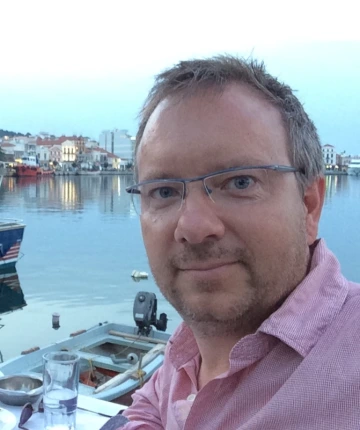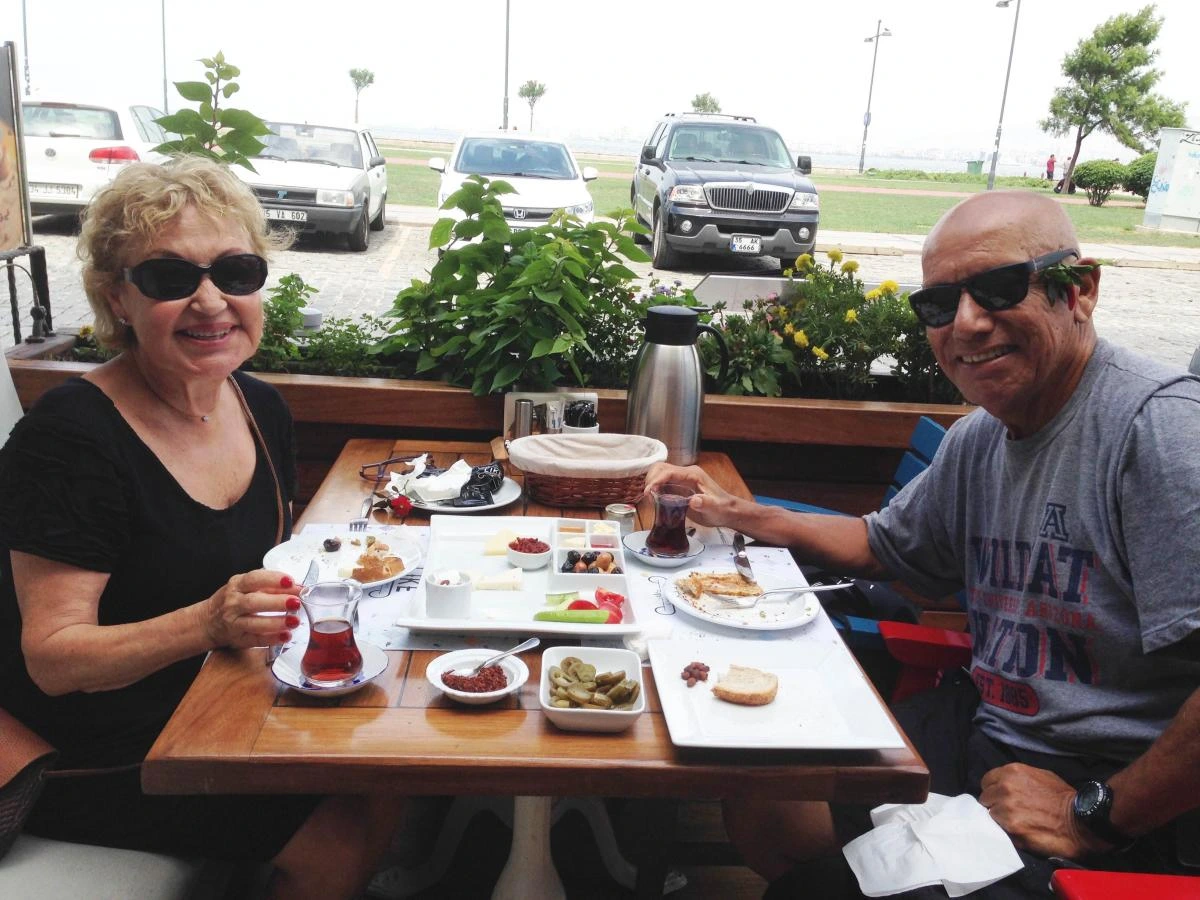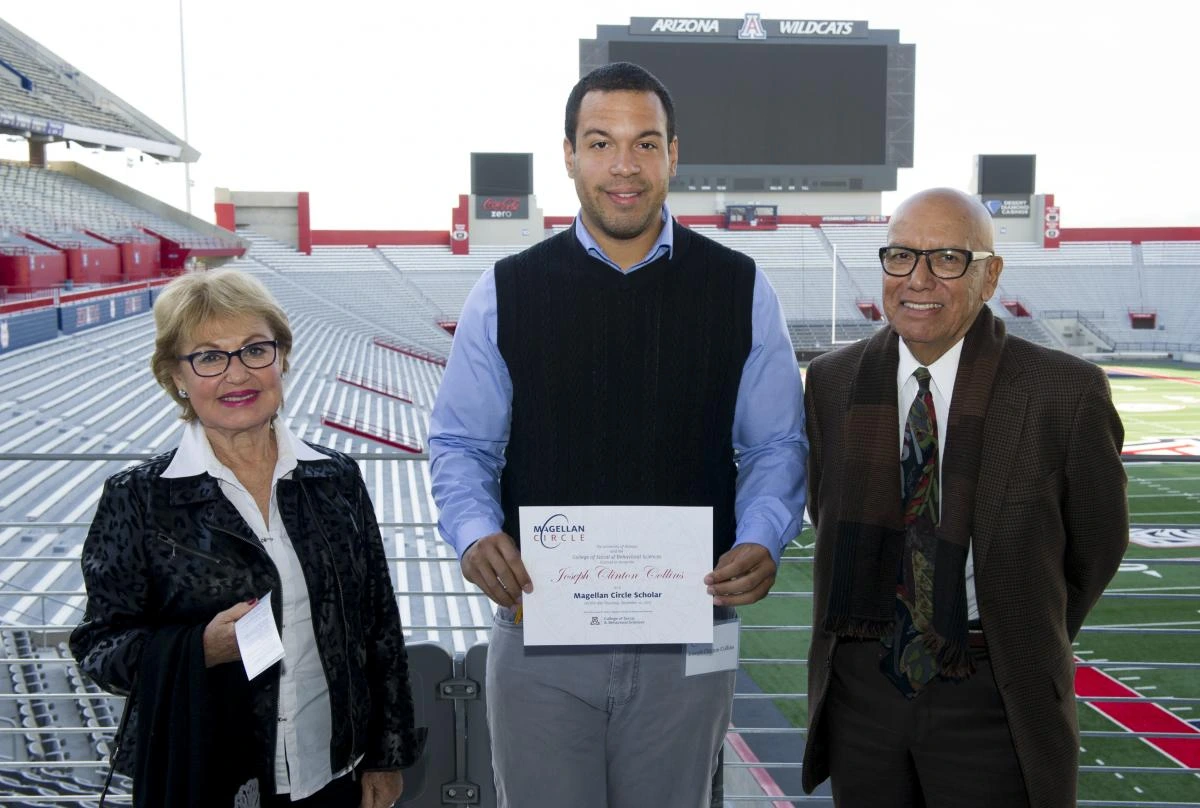According to University of Arizona Professor Brian Silverstein, one-fifth of all of the students studying Turkish in the United States are doing so at UArizona.
"Turkey’s past, present, and future furnish exceptionally important windows on several of the key regions and crucial issues of our time," Silverstein said.
Given the interest in Turkey by students, the expertise on the region among UArizona faculty, and the importance of the region, the university established the Arizona Center for Turkish Studies, or ACTS.
A vote of confidence in the center arrived from Rich and Bahar Delgado, donors to the College of Social and Behavioral Sciences, who designated a portion of their estate gift to fund visiting scholars in Turkish studies.
ACTS is a research center that brings together a large and growing interdisciplinary group of faculty and students from across the UArizona campus

to study all aspects of Turkish society, including history, politics, economy, literature, and music. Silverstein now directs the center.
A cultural anthropologist in the School of Anthropology, Silverstein has published on Islam and modernity in Turkey, as well as Sufism in the late Ottoman Empire and Republic of Turkey. His current work is on institutional reform in Turkey and the country’s on-again, off-again negotiations over entry into the European Union.
"In recent years Turkey has gained importance in the region and beyond as its economy has grown to be one of the 20 largest in the world and the country has intensified its relations with not only Europe and the Middle East, but also Africa and Asia," Silverstein said.
Silverstein said that he and his colleagues – especially Professor Benjamin Fortna, a prominent historian of the late Ottoman Empire whom the university enticed away from the University of London to be the new director of the School of Middle Eastern and North African Studies – are working to make the Arizona Center for Turkish Studies the leading center for the study of Turkey and its relationships with the world.
"One of the things that we see as making us unique is that we want to focus on people and issues that have not received sufficient attention, for instance minorities or environmental issues," Silverstein said.
The center is focused on supporting UArizona student and faculty research and helping the university and Tucson communities learn more about Turkey. Student and faculty presentations and public talks by visiting faculty members are all part of
the strategy.
Silverstein says he has "big plans" for the future of ACTS, including providing student travel scholarships to Turkey, hosting visiting scholars, involving students and/or faculty in educational trips to Turkey for the public, and ensuring Ottoman Turkish can be taught regularly.
Rich Delgado credits Silverstein’s vision, along with Bahar’s Turkish roots and the couple’s relationship with other UArizona alumni from Turkey, as what "motivated us to give ACTS a push."

Rich and Bahar Delgado
Bahar was born in Izmir, Turkey, and completed two years of college in home economics at Dokuz Eylül University. Bahar later moved to Colorado, but during a summer visit to Turkey to visit her mother in 1984, she met an American serviceman, Rich Delgado, who was stationed with NATO in Izmir.
"Nothing is better than a warm summer night along Izmir’s waterfront: the 'Birinci Kordon' and its mile-long string of open-air cafes, mezes [appetizers], raki, amazing salads and seafood," said Bahar. "It was in such a setting that we spent our first date, topped off with the first fresh figs Rich had ever eaten – and then a 2 a.m. taxi ride to Alexander’s Castle, vintage 323 BC, all
under a full moon."
The couple married in early 1986.
Rich, a Nebraska native, graduated with a B.A. in history from Creighton University, an M.A. in journalism from the University of Missouri, Columbia, and a doctorate in education administration from UArizona. He spent 24 years in the U.S. Army as an infantryman, aviator, and public affairs officer. He also taught for Department of Defense Overseas Schools, initially in Germany and later in Incirlik, Turkey.
Since Rich retired in June 2008, the couple have spent the majority of their time in Izmir or taking cruises (more than 450 days at sea).
"Beyond Antarctica, there are few places on the planet where we haven’t had a local beverage," Bahar said.

From left: Bahar Delgado, Joseph Collins (Magellan Circle Scholar), and Rich Delgado
The couple learned about the Magellan Circle from Rowene Aguirre-Medina, an SBS board member, and soon became members. The couple say they enjoy the rich cultural life the University of Arizona offers, including SBS’s Downtown Lecture Series.
In addition to supporting the Arizona Center for Turkish Studies, the Delgados have allocated funds to two other areas in SBS in their estate gift: a Magellan Circle lifetime membership and scholarships for students in the School of Journalism.
"We’ve enjoyed the Magellan Circle events and want to advance the purposes of the College of Social and Behavioral Sciences," Rich said. He added that they are giving to journalism in acknowledgement of Rich’s master’s degree in journalism. "The state of journalism and its evolving nature are of great interest to me."
The couple are also donating to the College of Education and the Arizona Assurance scholarship program.
Silverstein said that he is "extremely grateful and proud" of the Delgados’ support. "The Delgados’ gift comes at a crucial time for the center, as it will allow us to more regularly bring speakers from outside the UA, contributing expertise and perspectives that our students and the public don’t already get from our UA faculty."

